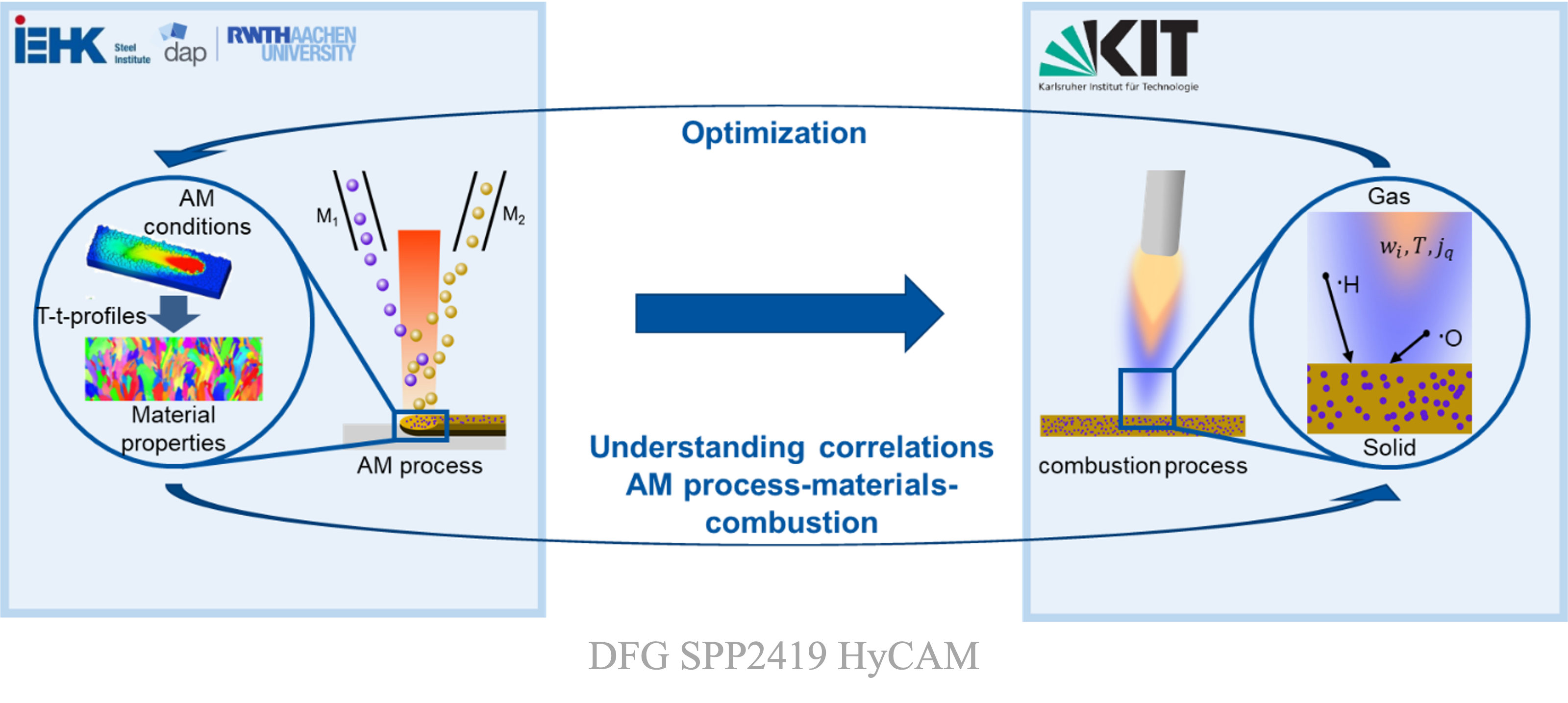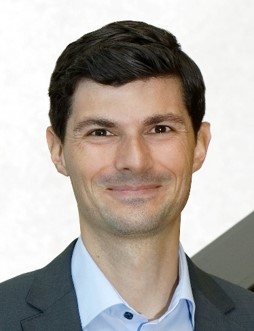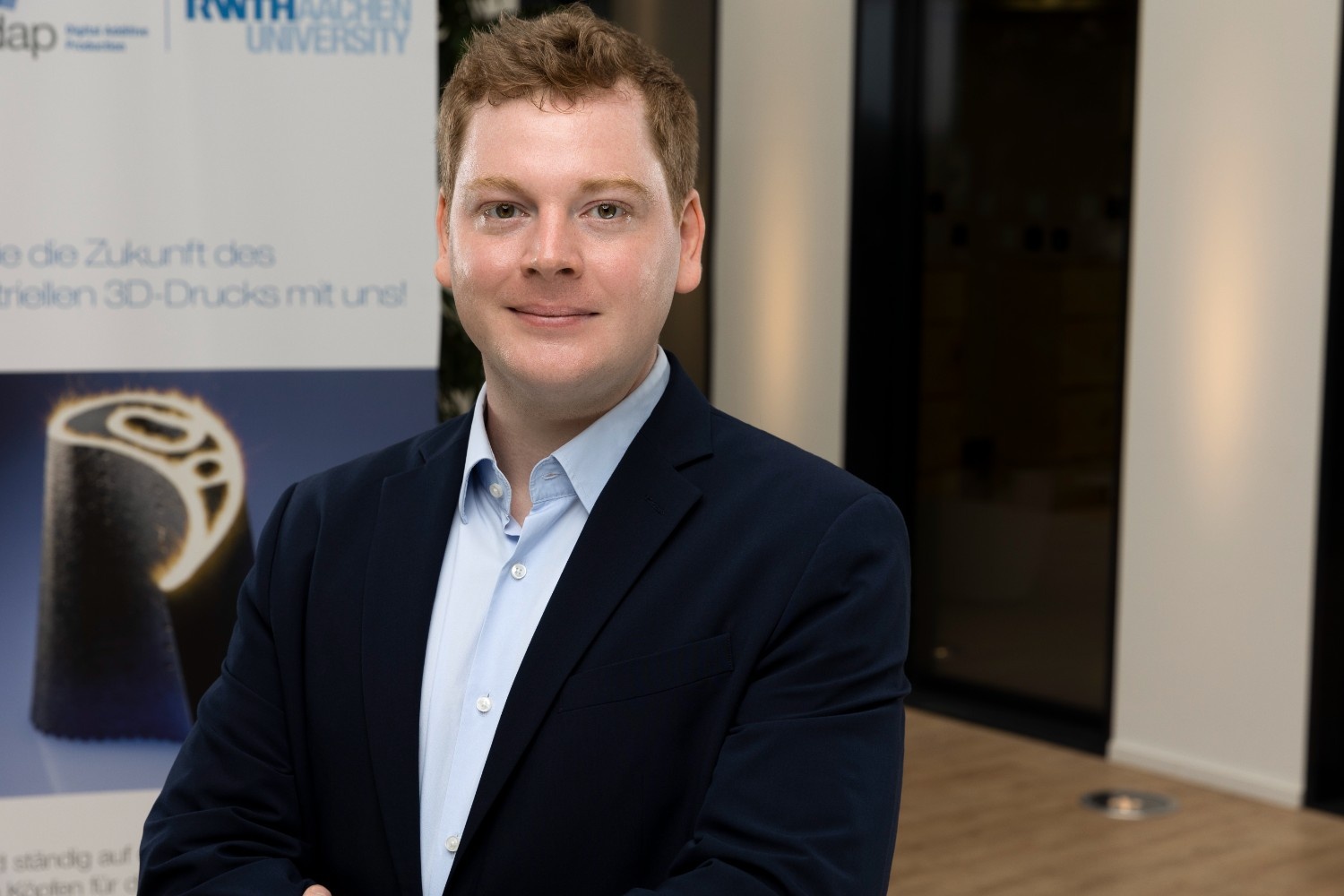03 - Analysis of the interaction between hydrogen-based combustion systems, hightemperature materials and laser-based additive manufacturing (H2MAT3D)
Summary
The efficiency of modern hydrogen-based combustion systems depends heavily on the flame-solid interactions since both the thermo-kinetic field inside the flame and the heat loss via the solid material strongly affect the flame stability. Furthermore, realization of novel geometrically complex burner designs can only be accomplished using additive manufacturing (AM) techniques. In H2MAT3D, the interaction between hydrogen-based combustion systems and additively manufactured materials is investigated experimentally and numerically. This will allow to bridge the gap between the design of AM burners and the process-material interaction in the combustion process. In order to achieve this, high-temperature resistant materials that are also processable by AM, in particular Laser Powder Bed Fusion (LPBF), are identified via thermodynamics-based alloy selection parting from Ni-base superalloys and produced via Extreme High-Speed Laser Application (EHLA), which enables a high-throughput alloy development. This work is supported by microstructure simulations that will contribute information factors influencing the high-temperature strength, degradation behavior and crack formation during additive manufacturing. The produced samples are studied in hydrogen combustion experiments and characterized pre- and post-operando to reveal degradation mechanisms. The experimental work on combustion is complemented by combustion simulations which aim to understand the influence of the material on the flame due to heat conductivity and surface reactions. The fundamental understanding gained in H2MAT3D will be used to harmonize the AM process conditions and high-temperature materials to yield combustion processes with enhanced efficiency. The results of this proposed research can be used for additive manufactured combustion systems in which tailored alloys and complex geometries help to increase the efficiency and to decrease the environmental impact of combustion processes.

Research Team
![[:en]Schleifenbaum[:] [:en]Schleifenbaum[:]](https://spp2419.rwth-aachen.de/wp-content/uploads/2024/03/Schleifenbaum-e1713624919894.jpg)
Prof. Dr.-Ing. Johannes Henrich Schleifenbaum
Principal Investigator (PI)
RWTH Aachen University
Digital Additive Production Chair
johannes.henrich.schleifenbaum(at) dap.rwth-aachen.de

Dr.-Ing. Christian Haase
Principal Investigator (PI)
Technical University (TU) Berlin
Chair of Materials for Additive Manufacturing
christian.haase(at)tu-berlin.de
![[:en]Maas[:] [:en]Maas[:]](https://spp2419.rwth-aachen.de/wp-content/uploads/2024/03/Maas.jpg)
Prof. Dr. rer. nat. Ulrich Maas
Principal Investigator (PI)
Karlsruhe Institute of Technology
Institute of Technical Thermodynamics
ulrich.maas(at)kit.edu
![[:en]Yu[:] [:en]Yu[:]](https://spp2419.rwth-aachen.de/wp-content/uploads/2024/03/Yu.jpg)
Dr.-Ing. Chunkan Yu
Researcher
Karlsruhe Institute of Technology
Institute of Technical Thermodynamics ITT
chunkan.yu(at)kit.edu

Dr.-Ing. Philipp Golda
Researcher
Karlsruhe Institute of Technology
Institute of Technical Thermodynamics ITT
philipp.golda(at)kit.edu

Brings Klaus
Doctoral Researcher
RWTH Aachen University
Digital Additive Production Chair
klaus.brings(at)dap.rwth-aachen.de

Sayk Lennart
Doctoral Researcher
RWTH Aachen University
Digital Additive Production Chair
sayk.lennart(at)dap.rwth-aachen.de

Timo Jennerjahn
Doctoral Researcher
Karlsruhe Institute of Technology
Institute of Technical Thermodynamics ITT
timo.jennerjahn(at)kit.edu

Ahmet Turnali
Doctoral Researcher
Technical University Berlin
Chair Materials for Additive Manufacturing
turnali(at)tu-berlin.de



